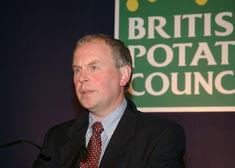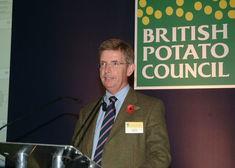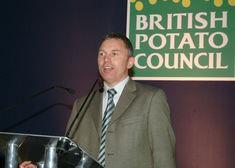


There are bright prospects for UK seed potato growers if the industry can find a co-ordinated and disciplined approach to supplying the market, according to speakers at the British Potato Council’s Seed Industry Event in Crieff, Perthshire, Scotland, on November 2-3.
A total of 190 seed growers, breeders and exporters attended the event.
UK growers who focus on the exact needs of the customer and aim for the lowest levels of disease are set to reap rewards, said David Nelson at Branston.
He added that unpredictability of quality often forces seed growers into dual-purpose production - growing for both the seed and ware markets - which can compromise optimum agronomic factors, such as nitrogen rates, harvest dates and the risk of further disease.
Jay Wootton from farm business consultants Andersons, which has been working closely with the BPC to develop new benchmarking software for levy-payers, said growers need to be more disciplined in their approach to the market if they are to improve returns.
He said: “The industry struggles with dual-purpose production, which leads to compromise, and potentially less efficient cost of production. The need to have more planned production need not be a threat, but should be treated as an opportunity to focus management.”
A more co-ordinated approach to marketing seed is needed - and over representation, where a greater acreage of a particular variety than actually exists is offered to the market, is part of the problem, according to Mike Cumming, who manages Lour Farms on the outskirts of Forfar in Angus. “As an overseas customer, what message would you go home with after being shown the same field by more than one merchant?” he asked.
But a positive message came out of the event, according to the BPC.
Iain Dykes, BPC seed and export manager, said: “The issues that have been highlighted are not new, but I think the penny’s finally dropped - and it is now more important than ever that the industry works together to make the most of the available opportunities.”



